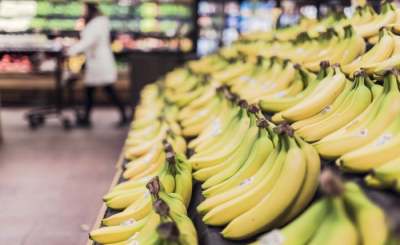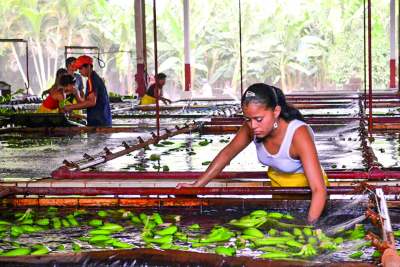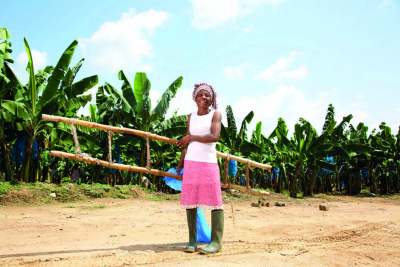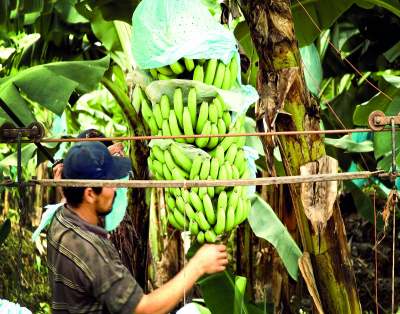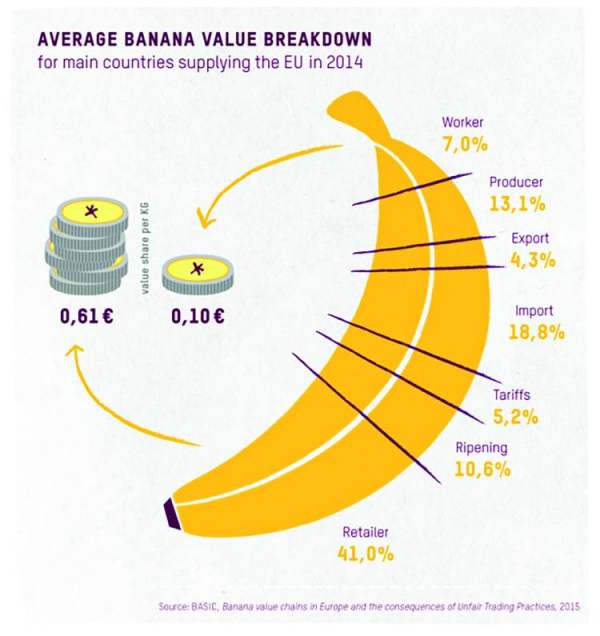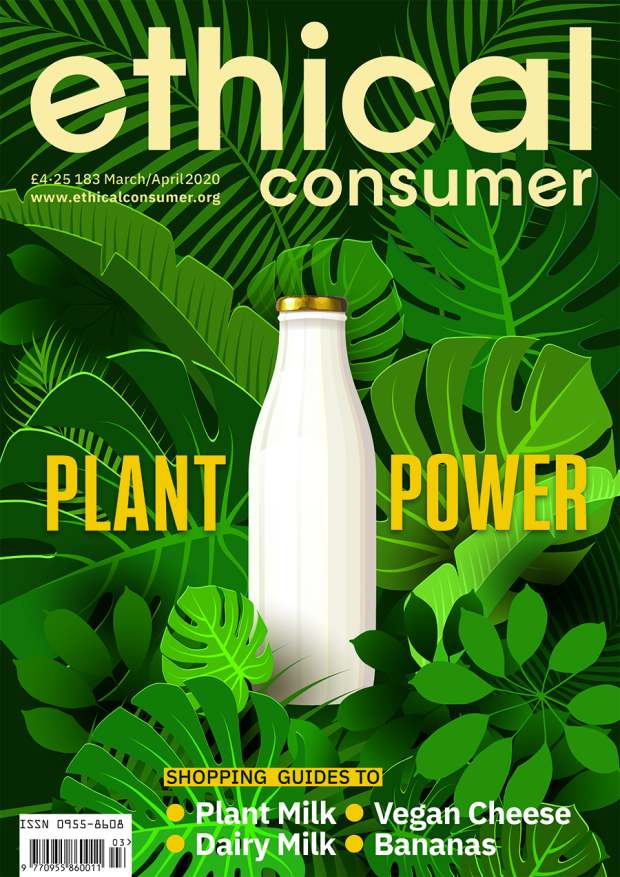The best of the bunch?
Bananas are the most popular fruit in the UK. We eat about one in every six bananas consumed in the EU. For years, though, the banana has been at the centre of conflicts over the rights of workers and damage to the environment.
Many of the bananas eaten in the UK come from Latin America, principally Colombia, Costa Rica, the Dominican Republic and Ecuador.
While some bananas are grown by small independent producers, most come from large plantations controlled by big multinational corporations. These companies often own entire supply chains, from the farms to the distribution and shipping businesses.
Sadly, human rights abuses are common. In many countries, corporations focused on exporting the product abroad offer poor working conditions, often to vulnerable migrants. They rely on toxic chemicals that pollute the local environment and harm the health of local communities.
In response to this, bananas were one of the first products to be certified under Fairtrade, meaning that more ethical alternatives are available.


